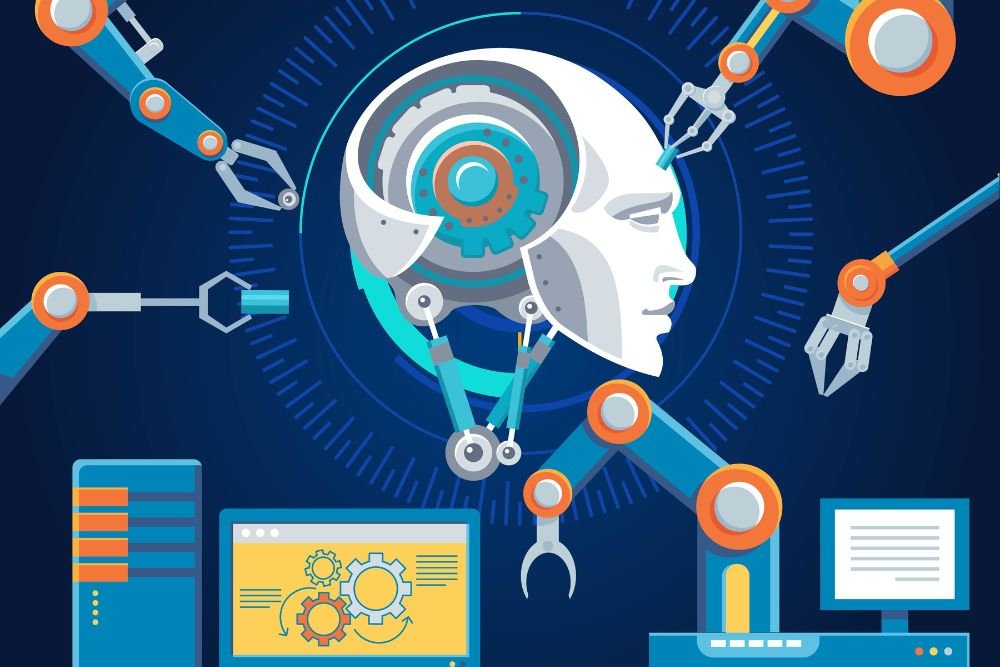How AI Prompt Engineering is Reshaping the Tech Industry
In the ever-evolving tech landscape, AI Prompt Engineering emerges as a transformative force, revolutionizing how we interact with technology. This blog delves into its profound impact on various sectors and its promising future.
Understanding AI Prompt Engineering
What is AI Prompt Engineering?
AI Prompt Engineering is a new approach in Natural Language Processing (NLP), allowing machines to produce human-like text with minimal prompts. Unlike traditional NLP, which needs lots of data and complex training, AI Prompt Engineering uses advanced machine learning to create coherent responses efficiently.
Evolution and Development
AI Prompt Engineering builds on advances in deep learning and neural networks. Through years of refinement, it's become a leading force in AI, driving improvements in language generation.
The Role of AI Prompt Engineering in Tech Industry
AI prompt engineering is reshaping the tech industry in several significant ways:
1) Customization and Personalization:
Prompt engineering allows for the customization and personalization of AI models to specific tasks, domains, or user preferences. This capability enables the development of tailored solutions that better meet the needs of individual users or businesses.
2) Increased Accessibility:
By providing a more intuitive interface for interacting with AI models, prompt engineering makes AI technology more accessible to users with varying levels of technical expertise. This accessibility opens up new opportunities for leveraging AI in diverse industries and applications.
3) Efficiency and Productivity:
Well-designed prompts streamline the interaction between humans and AI systems, leading to improved efficiency and productivity. By guiding AI models to produce desired outputs, prompt engineering reduces the time and effort required for users to achieve their goals.
4) Innovation and Creativity:
Prompt engineering encourages innovation and creativity by empowering users to explore new ideas and possibilities with AI technology. By providing a flexible framework for generating diverse outputs, prompts inspire creative thinking and experimentation.
5) Collaboration between Humans and AI:
Prompt engineering facilitates collaboration between humans and AI systems by providing a common language for communication. This collaboration enables the development of hybrid intelligence solutions that leverage the strengths of both humans and machines.
6) Ethical and Responsible AI Development:
Through careful design and validation of prompts, developers can address ethical considerations and promote responsible AI development. By guiding AI models to produce fair, unbiased, and socially responsible outputs, prompt engineering helps mitigate the potential risks associated with AI technology.
7) Cross-Disciplinary Collaboration:
Prompt engineering encourages cross-disciplinary collaboration between researchers, developers, domain experts, and end-users. This collaboration fosters knowledge sharing and innovation across diverse fields, leading to the development of more robust and effective AI solutions.
8) Adaptability and Flexibility:
Prompt engineering enables AI models to adapt to changing requirements, preferences, and environments. This adaptability makes AI technology more flexible and responsive to evolving needs, ensuring its relevance and effectiveness in dynamic real-world settings.
Overall, AI prompt engineering is playing a transformative role in the tech industry by empowering users, fostering innovation, promoting collaboration, and advancing the development of ethical and responsible AI solutions. As prompt engineering continues to evolve, its impact on the tech industry is expected to grow, driving further advancements in AI technology and its applications across various domains.
Applications in Various Sectors
1. Healthcare:
In healthcare, AI Prompt Engineering is improving patient care by streamlining documentation, automating transcription, and improving communication. It generates accurate medical reports and treatment plans, enhancing efficiency and outcomes.
2. Finance:
In finance, it's revolutionizing analysis, risk management, and customer service. By producing insightful reports and automating tasks, it helps institutions make data-driven decisions and offer better services.
3. Education:
In education, it's changing online learning and content creation, making lessons more interactive and personalized. This enhances the learning experience for students of different styles.
Advantages and Challenges
Benefits of AI Prompt Engineering:
One major benefit is its ability to produce high-quality text with minimal input, saving time and effort in content creation. By automating tasks, it lets organizations focus on more important work, boosting productivity and innovation.
Addressing Concerns and Challenges:
But its adoption also raises concerns about privacy, bias, and ethics. It's crucial for developers and organizations to prioritize transparency and ethical use to minimize risks and ensure responsible innovation.
Future Prospects
Growth Potential
The future of AI Prompt Engineering looks bright, with possibilities like better language understanding and integration with emerging tech like AR and virtual assistants, opening up new applications.
Integration with Emerging Technologies
Combining AI Prompt Engineering with emerging tech promises even more innovation. It could improve virtual communication, personalize user experiences, and transform creative industries in unexpected ways.
Ethical Considerations
Ensuring Responsible Use
As AI Prompt Engineering evolves, it's important for prompt engineers and policymakers to prioritize ethics. By promoting transparency and fairness, we can maximize its benefits while minimizing risks for society.
Conclusion
AI Prompt Engineering revolutionizes tech by enabling customized AI interactions, fostering collaboration, and advancing ethical development, driving innovation and efficiency across sectors.


